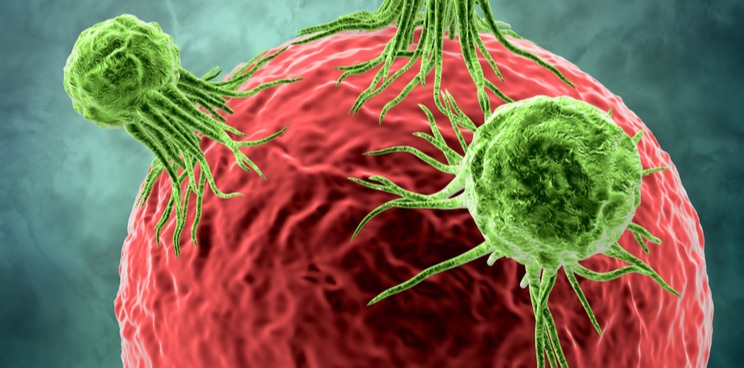The UK company Achilles Therapeutics has raised €110M (£100M) to test its personalized cancer cell immunotherapies in humans for the first time.
The large Series B round will fund two phase I/IIa clinical trials of Achilles’ preclinical immunotherapy which are expected to start this year: one in non-small cell lung cancer and the other in melanoma. Achilles will also use the money to increase its preclinical programs targeting other diseases, as well as scale up its cell therapy manufacturing facilities.
Achilles’ cell immunotherapy involves extracting immune T cells called tumor-infiltrating lymphocytes from patients’ tumor samples. The company cultures the T cells and clones the ones that target neoantigens — proteins that are on the surface of the patients’ cancer cells. The company then injects them into the patient, where the cells recognize the neoantigens — the tumor’s ‘Achilles’ heel’ — and attack the cancer.
Achilles’ cell therapy resembles a well-known form of cancer cell immunotherapy, CAR T-cell immunotherapy, which consists of modifying patients’ immune T cells to hunt down cancer cells. CAR T-cell immunotherapy has shown particularly big potential for treating blood cancer, with the first approval for this type of cancer in 2017. Achilles’ treatment targets solid tumors by using the infiltrated T cells, whereas CAR T is currently limited to treating blood cancer.
The Series B round was led by the newcomer US investor RA Capital Management. The round also included Achilles’ founding investor, the life sciences VC firm Syncona, among others.
This fundraise follows a trend of high investor and corporate interest in companies developing cell immunotherapies. Last week, for example, the Swedish company Immatics signed a deal with Celgene worth more than €1.3B to develop cancer immunotherapies based on immune T cells. Another company, the UK Quell Therapeutics, launched earlier this year with a hefty €40M Series A from Syncona and other investors to develop cell immunotherapy treatments for non-cancer indications such as autoimmune disease.
Images from Shutterstock





